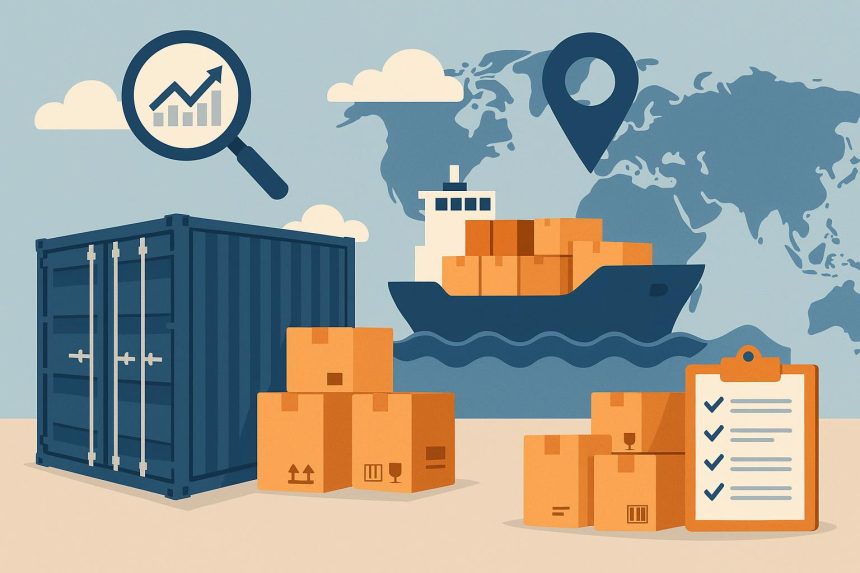In today’s global marketplace, shipping logistics can make or break the agility and profitability of small and medium-sized enterprises (SMEs). Less than Container Load, or LCL shipping, empowers businesses to access international markets economically, sharing container space with other shipments to avoid the overhead of booking a full container. As business landscapes change rapidly and demand unpredictable spikes, understanding LCL ocean freight becomes a strategic differentiator for growth-minded companies.
LCL solutions lower upfront costs and maximize supply chain flexibility—key advantages for SMEs striving to manage cash flow and inventory risks. While LCL makes overseas trade more attainable, successful execution requires attention to packaging standards and adherence to evolving customs regulations across borders.
Cost-Effectiveness of LCL Shipping
Controlling transportation costs is a top priority for SMEs navigating international trade. With LCL shipping, businesses pay only for the cargo space utilized, sidestepping the investment necessary for a Full Container Load (FCL). As one of the most widely used methods for international trade, ocean freight shipping provides a reliable and cost-effective option for moving goods across long distances. This method enables companies to reinvest savings into other operational areas, such as marketing or product enhancements. According to Forbes, companies that optimize logistics expenses can unlock significant growth potential and build resilience during market volatility.
Flexibility and Frequent Shipments
Unlike traditional FCL, LCL offers unparalleled flexibility by accommodating smaller shipments more frequently. This flexibility aligns closely with modern inventory methodologies like just-in-time (JIT), reducing storage expenses and empowering businesses to adapt swiftly to evolving consumer demand. Industries with unpredictable trends, such as electronics or fashion, particularly benefit from the rapid response that LCL shipments provide.
Packaging and Customs Considerations
Securing goods during consolidation with other shippers’ cargo is critical in LCL shipments. SMEs must use durable packaging materials, clear labeling, and accurate documentation to ensure intact delivery and compliance with carriers’ standards. Non-compliance can lead to customs delays, fines, or damaged merchandise, eroding LCL’s advantages.
- Use robust materials suited for long transits and handling.
- Attach legible and comprehensive labels to every parcel.
- Familiarize staff with international and country-specific shipping documentation.
Given the intricacies of international customs, partnering with experienced freight forwarders can mitigate common pitfalls and ensure shipments clear borders on schedule. Staying current with global customs trends and requirements is vital—The Wall Street Journal reports ongoing changes that can impact processing times and costs.
Technological Advancements in LCL Logistics
Technology elevates LCL shipping, streamlining route planning, documentation, and real-time tracking. AI-driven demand forecasting sharpens inventory planning, while cloud-based tracking allows shippers to monitor containers at every stage. Additionally, blockchain solutions are emerging, fostering transparency and safeguarding against fraud by creating tamper-proof shipping and customs records. These advancements help SMEs achieve sophistication and reliability previously only available to large enterprises.
Sustainability and Environmental Impact
LCL shipping can play an important role in sustainable logistics by maximizing the capacity utilization of containers. Consolidation reduces the vessels needed on global shipping lanes, helping to lower carbon emissions and align with environmental targets. As more businesses adopt practices spotlighted in The New York Times, sustainability in shipping is moving to the foreground, proving that operational advantage and ecological responsibility can go hand in hand.
Choosing the Right Logistics Partner
SMEs should prioritize logistics partners who offer full transparency, technology integration, and proven LCL expertise. Look for real-time tracking tools, comprehensive customer service, and clear pricing policies. A partner’s network strength and knowledge of customs can minimize the risk of shipment delays and added fees.
- Seamless digital document management.
- Integrated tracking and problem resolution systems.
- Compliance with international best practices.
Final Thoughts
LCL shipping is a powerful tool for SMEs aiming to compete globally while remaining agile and cost-efficient. By mastering proper packaging, customs documentation, and leveraging new logistics technologies, small businesses can optimize every dollar spent and every shipment dispatched. The path to a broader market and sustainable growth starts with strategic shipping decisions, making LCL ocean freight a vital consideration for ambitious organizations everywhere.
Lynn Martelli is an editor at Readability. She received her MFA in Creative Writing from Antioch University and has worked as an editor for over 10 years. Lynn has edited a wide variety of books, including fiction, non-fiction, memoirs, and more. In her free time, Lynn enjoys reading, writing, and spending time with her family and friends.















